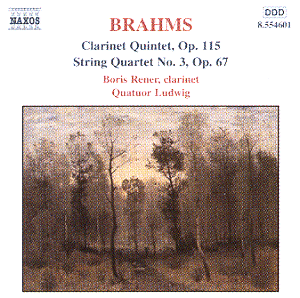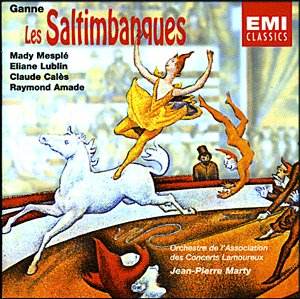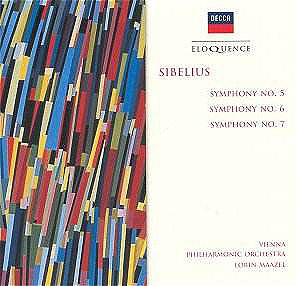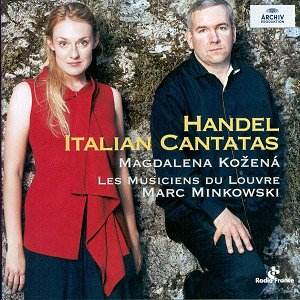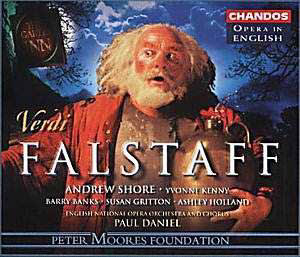 Composer: Giuseppe Verdi
Composer: Giuseppe Verdi
Works: Falstaff
Performers: Andrew Shore (bar), Yvonne Kenny (sop), Ashley Holland (bar), Susan Gritton (sop), Barry Banks (ten), Clive Bayley (bass), Richard Roberts (ten), Stuart Kale (ten)
Recording: English National Opera Orchestra and Chorus, conducted by Paul Daniel. Recorded 2001, Blackheath Halls, London. Mid price.
Label: Chandos
Giuseppe Verdi’s Falstaff stands as a testament to the composer’s late-career mastery, blending wit, pathos, and an intricate orchestral tapestry that reflects both the folly and humanity of its titular character. This opera, completed in 1893, draws its narrative from Shakespeare’s The Merry Wives of Windsor and Henry IV, showcasing Verdi’s ability to transform literary characterizations into rich musical portrayals. The Chandos recording, part of the “Opera in English Series,” presents a unique opportunity to experience this work in a language often considered less suited for operatic nuance, yet it also raises questions regarding the interpretative choices made throughout this performance.
Andrew Shore’s portrayal of Falstaff is marked by commendable character work, though his vocal execution reveals limitations that detract from the overall impact. His voice, while expressive, lacks the robust tonal variety that one expects from a quintessential buffo baritone. The moments of comic brilliance are often overshadowed by a spreading quality in his tone under pressure, which becomes particularly evident in the climactic scenes. This weakness is less noticeable in the theater, where his physicality can compensate, but in the recording, the lack of vocal strength is more pronounced. Shore’s diction, however, is a strong point, effectively conveying Falstaff’s mischievousness and vulnerability, particularly in the famous “Honor” aria, where the character’s bravado is humorously juxtaposed with his eventual humiliation.
Ashley Holland as Ford offers a variable performance; his diction sometimes falters, yet he captures the character’s emotional range adeptly, especially in the jealousy aria, where he skillfully navigates the shifts in inflection and tone. However, the occasional wobble in his voice during climactic moments detracts from the overall effectiveness. The female roles present a more uniformly pleasing palette, with Yvonne Kenny’s spirited Alice and Susan Gritton’s ethereal Nannetta providing bright contrasts to the male voices. Gritton, in particular, shines alongside Barry Banks, whose youthful tenor embodies Fenton’s ardor with both clarity and charm, making their duet a highlight of the recording.
The minor roles display a mixed bag of performances, with Clive Bayley’s focused Pistol standing out against some less stable interpretations. The engineering of the recording, unfortunately, does not serve the performers well; the voices are set back within the orchestral fabric, resulting in a lack of immediacy that is usually a hallmark of Chandos productions. The absence of atmospheric depth leaves the listener longing for a greater sense of the ensemble’s interplay, which is critical in Verdi’s orchestration, particularly during the fugue in the finale. Paul Daniel’s conducting, while capable, lacks the dynamic nuance that can elevate Verdi’s score to its full potential. His interpretations feel somewhat conventional, missing the rich contrasts that conductors like Mark Elder or Ted Downes have achieved in other recordings.
This recording of Falstaff in English certainly holds a unique position, especially for those seeking to experience Verdi’s final opera in their native tongue. Yet, it becomes evident that the performance and interpretation, while commendable, do not reach the heights of some of the more distinguished recordings available. For those willing to explore, the vibrant urgency of Karajan’s 1956 recording offers a more immediate engagement with the score, despite its lack of warmth. Ultimately, while this Chandos release is a valuable addition to the collection of anyone seeking Verdi in English, it does not quite fulfill the promise of the composer’s final comedic masterpiece.
